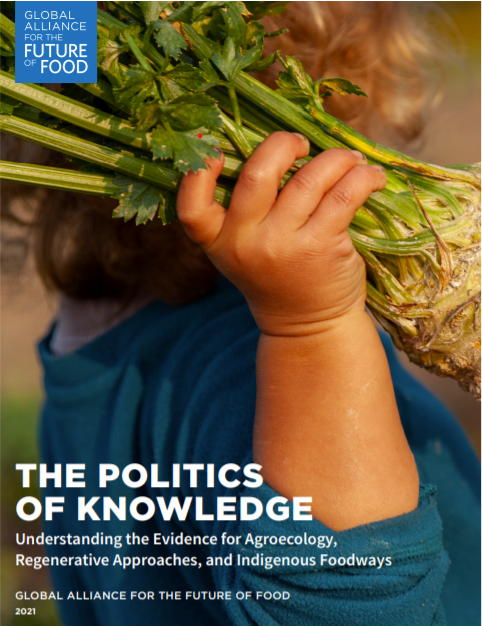I’m on the visionary panel. To register, click here.

Check out this new report from the Global Alliance for the Future of Food, an alliance of foundations devoted to using “our resources and networks to get sustainable food systems on the poltical, economic, and social agenda.”

Working with 17 contributing teams representing geographic, institutional, sectoral, gender, and racial diversity, the compendium is anchored in debunking the most common narratives about the future of food, addressing questions about yield, scaling potential, and economic viability….For an overview of this work, featuring case studies, stories, video, and audio from around the world, check out this multimedia interactive. Discover powerful and compelling evidence that food systems transformation is possible — and already happening.
Other resources on this site include an interview with me: EVIDENCE, POLITICS AND THE FUTURE OF FOOD, for example:
LB: In your opinion, what’s the role of philanthropic funders and donors in transforming food systems and how can they best activate a research and action agenda that is focused on political and social justice, the right to food, and food sovereignty?
MN: The goals of food system transformation have to be to eliminate hunger, reduce the effects of obesity, and greatly reduce the impact of agriculture and food consumption on climate change. The best way to do that is to begin by asking the people who are most affected by these problems about the kinds of changes they would like to see, and then fund programs to effect those changes. That may sound obvious, but hardly anyone actually works that way with communities.